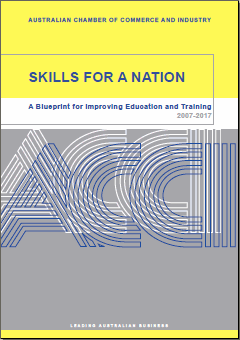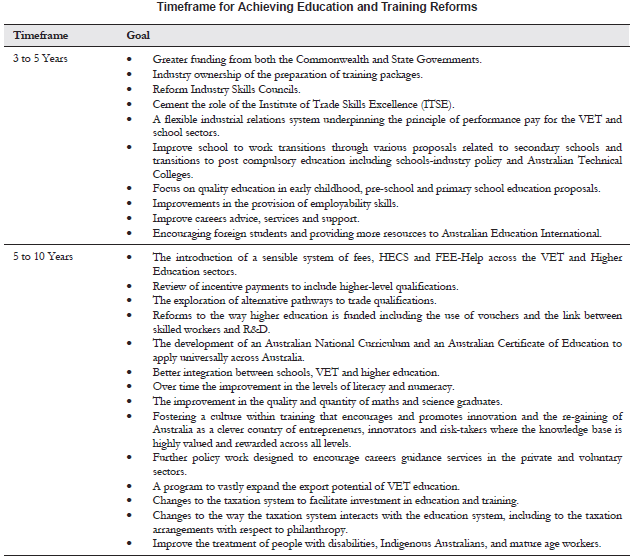|
|
|
|
|
|
|
News & Views item - April 2007 |
![]() And
Just When You Thought Black Wasn't White, There's Howard and Bishop to Set You
Right. (April 26, 2007)
And
Just When You Thought Black Wasn't White, There's Howard and Bishop to Set You
Right. (April 26, 2007)
In yesterday's Sydney Morning Herald's editorial we're
told, "Mr Howard is wrong, profoundly so, in positing that the choice is between
a strong economy or significantly cutting greenhouse emissions that, per person,
are the world's highest.
"Long-term economic health depends on environmental health;
it is truly a symbiotic relationship."
Michelle Grattan had written the day before in The Age, "Mr Howard rejected Mr Rudd's depiction of climate change as the overwhelming moral challenge of our generation. Mr Howard said this was 'misguided at best; misleading at worst. The moral challenge of our time is not vastly different from the challenge earlier generations faced. It's to build a prosperous, secure and fair Australia — a confident nation at ease with the world and with itself. It's to give every generation of Australians the chance of social mobility.'"
And yet CSIRO in a submission to the Prime Minister's emissions trading task force stated last month that most studies agreed developed countries needed to cut emissions by 60 -90% to avoid "dangerous" climate change.
Undeterred the Prime Minister attacked Labor and the Greens' "radical" goals to cut Australia's greenhouse gas emissions by 60 - 80% respectively. "I think it is crazy and irresponsible of any political party in this country to commit to a target when you don't know the impact of the target," he told ABC radio.
But today The Age reports, "'The CSIRO submission … contains nothing that undermines the Prime Minister's view that setting a target for Australia will be the most important economic decision Australia takes in the next decade,' a spokesman said. He said the submission was also consistent with Mr Howard's view that an effective response must be global and reflective of Australian conditions."
Confused? Don't be, Mr Howard is in election mode and so far he hasn't got anyone whom he can accuse of threatening to throw children overboard.
Today it was the
Minister for Education, Science and Training, Julie Bishop's turn to twist the
pretzel.
The Australian Chamber of Commerce and Industry today issued a 200 page report, Skills for a Nation: A Blueprint for Improving Education and Training 2007-2017 which contains over 150 recommendations for improving pre, primary and secondary school, TAFE and university learning.
It certainly doesn't suggest that the ACCI thinks the Coalition government or the states are creating the best of all educational worlds.
"Many things can be done now. However, significant changes to the way we organise the Vocational Education and Training (VET) system and the higher education system will require a large amount of political will from governments at different levels of our federal structure. They will take a considerable amount of time to implement."
It chides the Coalition government, "...in the 2006-07 Budget the Government noted its previous provision of around 3 percent annual real growth in the Defence budget until 2010-11 and proceeded to commit for the four years 2011-12 to 2015-16, to 'provide 3 percent annual real growth over the period, providing a firm basis for continued long-term planning'.
"However, there is no such commitment for education and training. Indeed the Budget forward projections are for real ‘growth’ of only 0.0 percent; 0.8 percent; and 1.7 percent over the next three years.
"This is simply not acceptable and will not achieve the goals of any Government.
"The business community believes that a similar commitment that has been given to Defence should be made to investing in the most important asset the nation has, ie our human capital."
As for Ms Bishop the ABC reports, "federal Education Minister Julie Bishop says she welcomes the ACCI's input and agrees with much of its report. Ms Bishop says the Howard Government has increased education funding over the past decade and it is the states that have not kept pace on increased schools spending."
For the record the ACCI provided the following table:

And as far as their discussion of science and mathematics they conclude and recommend:
Conclusion
Maths and science skills are important to the continued wellbeing of Australia and its economic competitiveness.
Australia performs above the OECD average in maths and science test scores which augers well for the future quality of Australia’s innovative and R&D future.
Nonetheless, the supply of maths graduates from universities is particularly low when compared to historical trends. This is mirrored in the skills of maths teachers at the secondary school level. This is a major policy issue.
The supply of science graduates from universities has performed better, boosted by migration. However, demand is high. There are particular shortages in engineering for example.
Also, of major concern is the shortage of high school science teachers in areas such as physics.
Demand is increasing from a range of industries and in order to remain competitive and become world leaders this demand must be met. Australia can always meet a proportion of its demand for skills from international sources. However, all OECD countries are in a competitive bidding race for international talent. In the longer term Australia must provide as high a proportion as possible of maths and science graduates through our domestic education system.
Teachers delivering maths and science classes could be more qualified with further education, through the introduction of a flexible wages structure in order to compete with other industries vying for the same skills.
ACCI PROPOSALS
ACCI proposes that:
teachers need access to more flexible wage structures to encourage maths and science graduates to enter science/maths professions including the engineering and the teaching profession;
while consideration can be given to reducing HECS and FEE-HELP obligations for those studying maths and science it is not the most effective mechanism for improving teacher training;
primary and secondary students are to be encouraged to study maths and science as a career path;
the immigration program should increasingly target the bringing of people with maths and science skills to Australia.